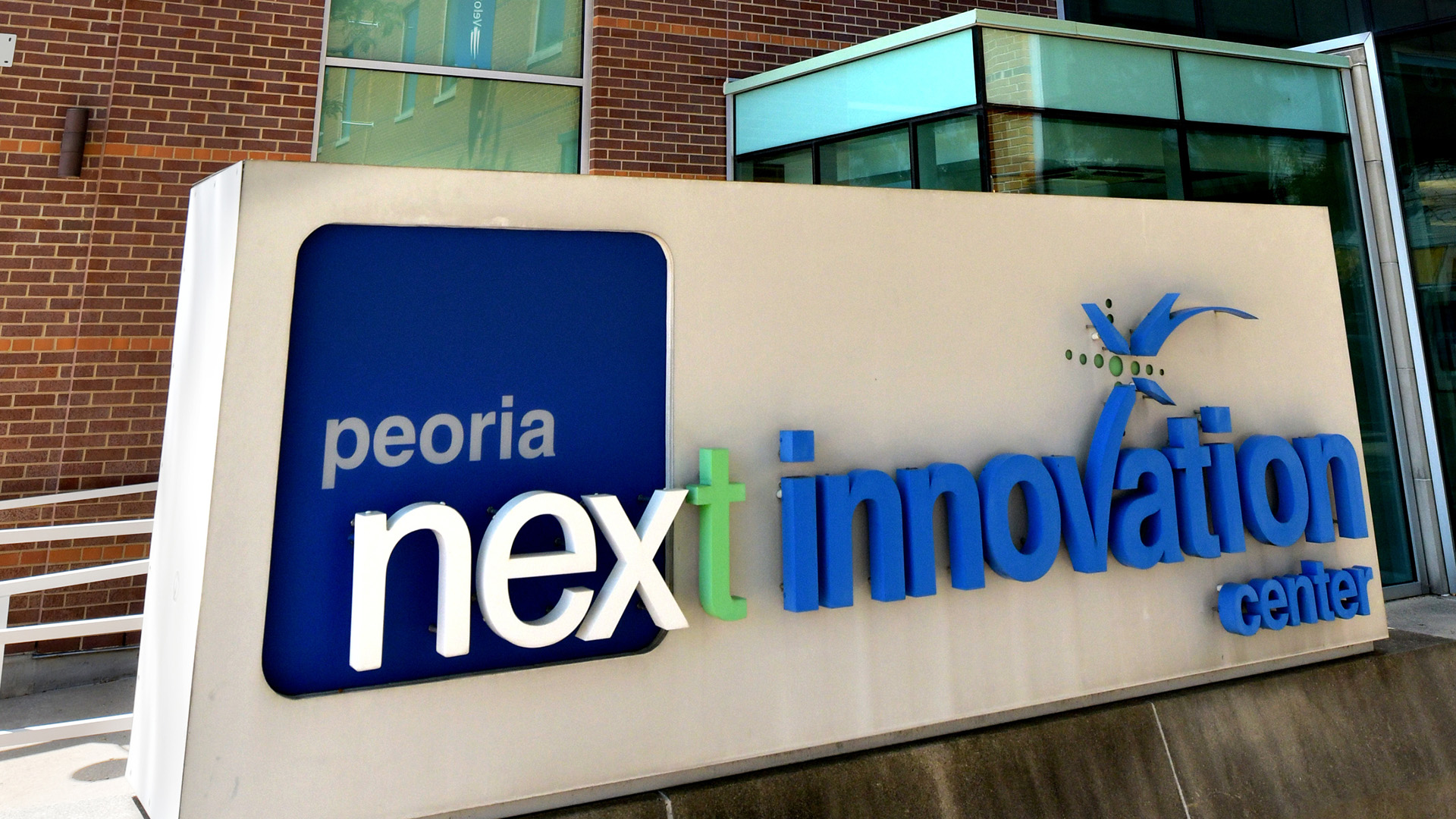Since 2007, the Peoria NEXT Innovation Center has been hatching local startups, letting them leave the nest and soar
By many accounts, small businesses are the backbone of the nation’s economy. Yet despite that distinction, many entrepreneurs run into obstacles when seeking capital and other kinds of support for their start-up businesses. Throw in an unforeseen pandemic or other disaster and it can mean the downfall of even a once-bustling, growing business.
So, how can small businesses survive? Construction company owner Bridget Booker found help at the Peoria NEXT Innovation Center.
“I had to learn the ins and outs of everything from A to Z within the construction business, but also a different facet of it being union added another layer to it,” said Booker.
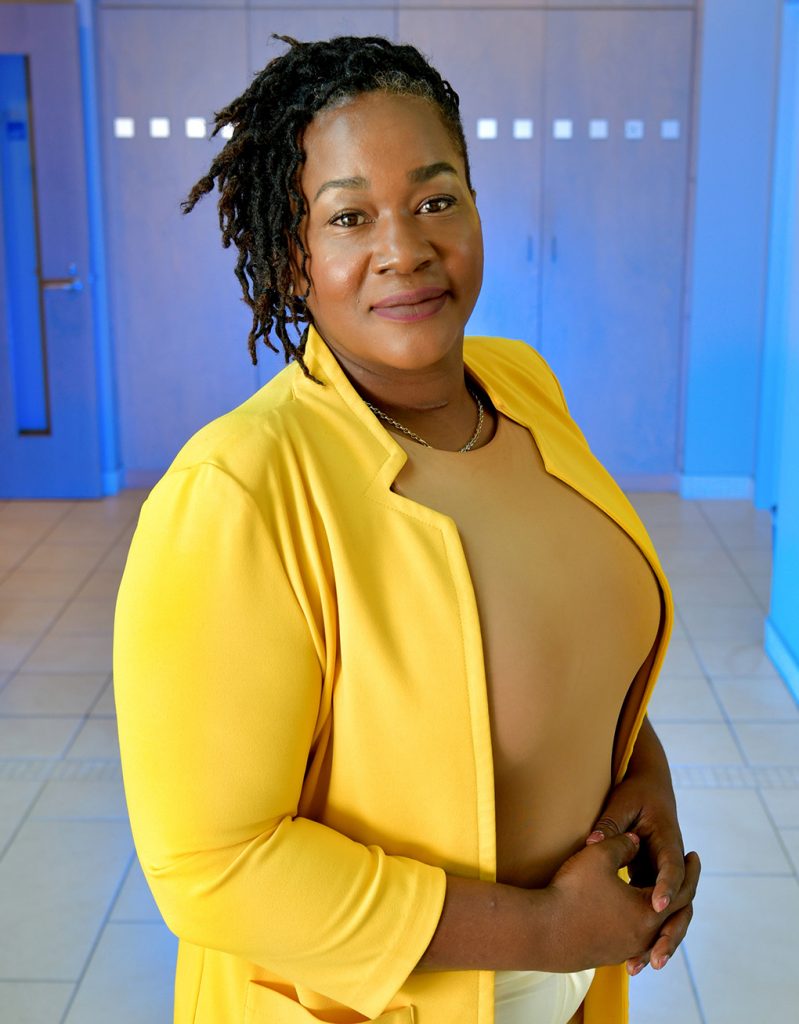
A 42-year-old single mother of four, Booker is a rare commodity in the male-dominated construction industry.
“I chose ironwork because it was one of the hardest trades,” she said. “I invested in this trade and got my card. I love ironwork, I love welding, the structural steel …”
In December 2016, she started Reign Construction inside the Peoria Next Innovation Center. Booker is one of eight female members of the Local 112 Ironworkers Union and carries the distinction of being the only Black female ironwork and general construction contractor in the state of Illinois.
Booker said the staff at the Innovation Center worked with her to create a business model. Being a tenant inside the building gave her access to more than just business classes. She also received the counsel of professionals with the expertise necessary to help her succeed.
Peoria NEXT Director Michael Stubbs said it’s all part of the mission.
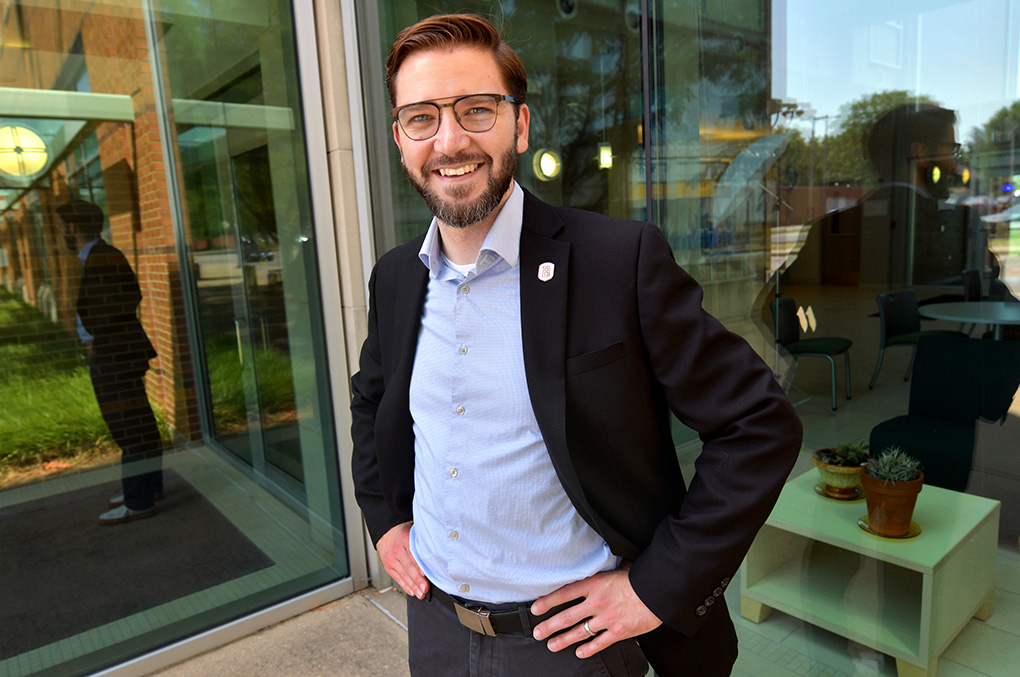
‘Made in America’ getting a new start in Peoria
Since 2007 Peoria NEXT and Bradley University have collaborated to provide a network of academic knowledge and professional support for startup businesses.
Collectively, Peoria NEXT companies have raised more than $460 million in startup capital
Bradley provides financial support for Peoria NEXT, which currently houses 26 tenants inside its Innovation Center, up 86% from two years ago. Seven of those businesses are minority owned.
The Innovation Center, which acts as something of a business incubator, leases space at below-market rates and gives tenants access to research labs, internet backup, conference rooms and other amenities at no additional cost. Meanwhile, work is now underway to find “larger pilot lab space for companies to graduate into,” said Stubbs.
Collectively, Peoria NEXT companies have raised more than $460 million in startup capital. They’ve done so with the help of $40 million in state and federal grants. The businesses have created more than 1,200 jobs. Some have gotten national recognition for the products they’ve developed.
Recently, Peoria NEXT added another agency to its network, the Illinois Manufacturing Excellence Center (IMEC). Under this new partnership, IMEC will cover the first three months of a one-year lease for four manufacturing tenants, saving them thousands of dollars. IMEC will also co-sponsor five in-person workshops and training opportunities at Peoria NEXT, all designed to help organizations become more effective and efficient.
IMEC President Dave Boulay said the partnership will help early-stage businesses gain their footing in an evolving marketplace where workforce changes, automation and supply chain issues are dramatically impacting the shape of manufacturing.
“So much of the way supply chains are changing” represents “a desire to have things made in America,” said Boulay. “That’s going to start with places like Peoria NEXT (and) those innovative companies that are building the products of our future.”
A need to diversify the local economy
Peoria Mayor Rita Ali said the partnership enhances the goal of making Peoria a center of innovation. Her comments align with the vision city leaders had more than 20 years ago when they began talking about developing a business incubator.
Up until 2017, Peoria had been the home headquarters to Caterpillar Inc., the leading manufacturer of construction and mining equipment, diesel and natural gas engines, industrial gas turbines and diesel electric locomotives. City leaders saw the need to diversify the local economy, said Second District City Council member Chuck Grayeb.
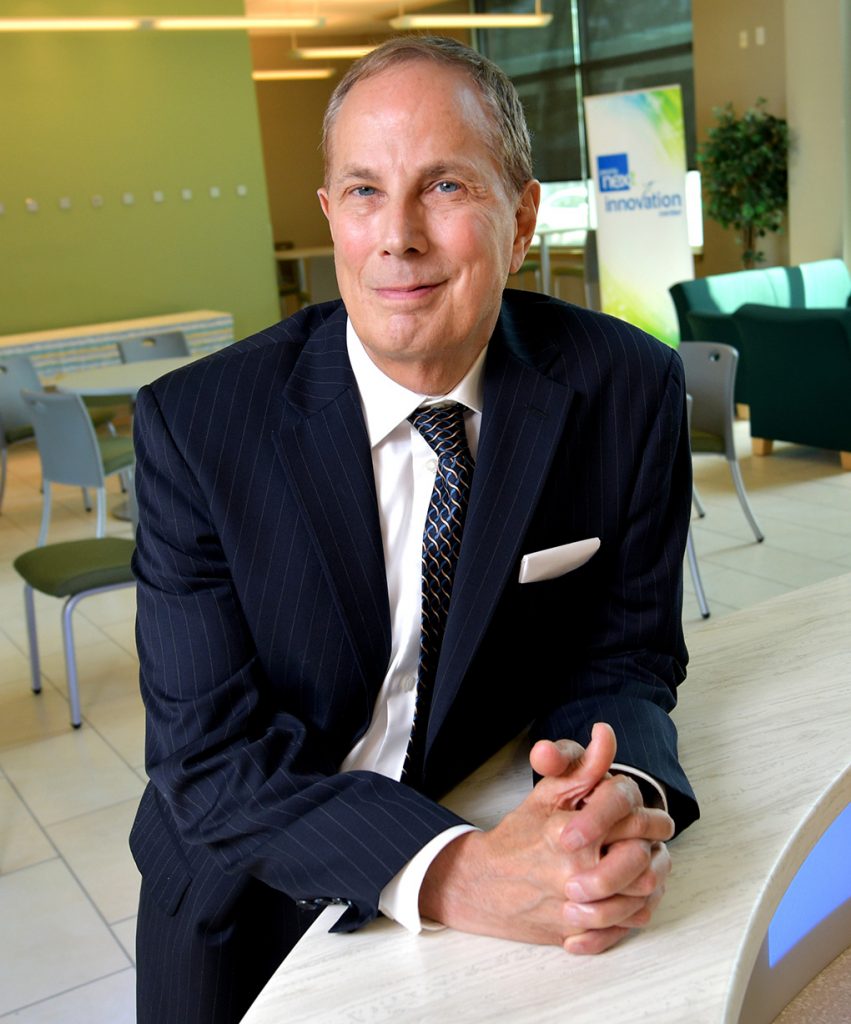
“In the mid-‘90s, the leadership determined that we were going to have to rely less on heavy manufacturing and more on technical professional industry,” recalled Grayeb. “We could see the handwriting on the wall.”
Specifically, there was a shared vision among the late Mayor David Ransburg and City Council members to make Peoria a world-class medical and research healing center, said Grayeb.
“It was important to bring smart minds together and the ground was laid for the creation of Peoria NEXT Innovation Center,” he said.
Can we get an ‘amen’?
Steven Snook took advantage. He discovered Peoria NEXT nearly two years ago when he was looking to expand an idea he said God gave to him. Snook’s company, Jesus Speaks LLC, produces picture frames that contain inspirational messages from Scripture.
Like many startup entrepreneurs, Snook was not looking to spend a whole lot of money, so he became the first affiliate member of Peoria NEXT. As an affiliate member, he pays only $75 a month to lease a co-working space instead of his own private office. Meanwhile, he still gets the benefit of free internet, a business mailing address, and a 50% discount on conference room use, among other amenities.
‘You have access to all these people who are experts in business’
— Steven Snook
Snook said the partnership with Peoria NEXT was his crash course in technology.
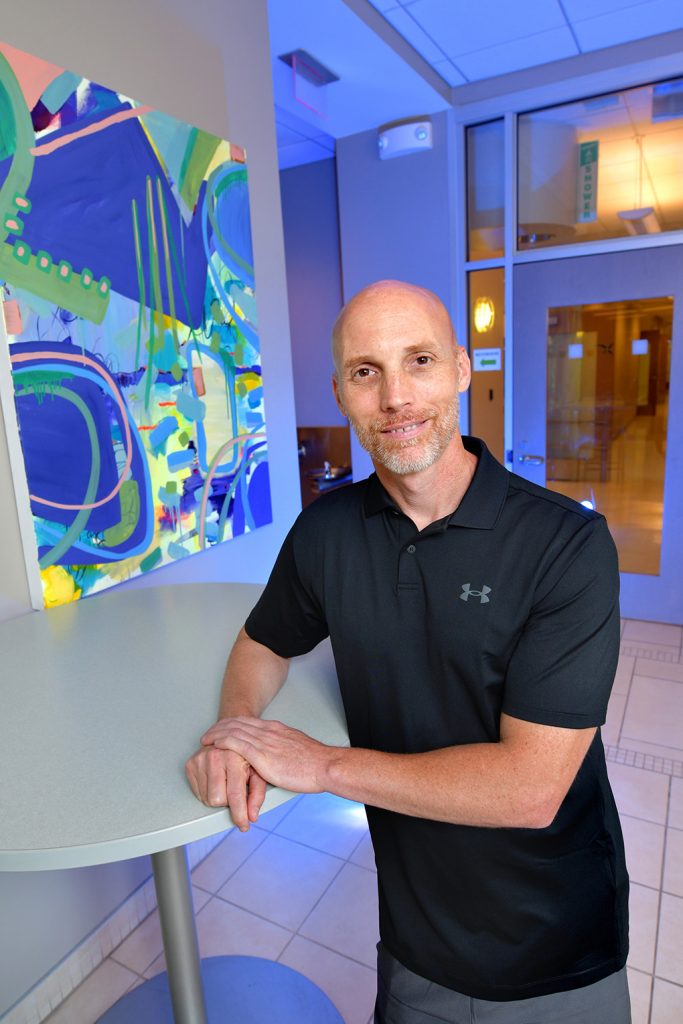
“I was so new to the world. I had just spent 19 years in federal prison for trafficking cocaine, so I was new to technology. I had never seen a smartphone. I really had no idea,” said Snook. “I started working here with no office and just stayed in the atrium and used the internet access and things that this place offered. Mike (Stubbs) would come down and work with me and teach me to send an email.”
In the year and a half since he joined, Snook has expanded his business to include the nonprofit Extraordinary Solitude Ministries, which allows him to do outreach ministry with the homeless. He said Peoria NEXT has been his springboard.
“You have access to all these people who are experts in business, and there’s also a community here of different people that you meet,” said the 46-year-old Snook. He credits Stubbs and the team at Peoria NEXT with equipping him with the tools and knowledge to help others and to create inspirational products, programs and services.
Notable success stories
Stubbs dismisses critics who say Peoria NEXT is not succeeding. Given the success of many startups, it’s not unusual for companies to move out of Peoria NEXT, he said.
‘Veloxity Labs that’s here now grew from two employees two years ago to over 20 employees now’
— Michael Stubbs
“Most recently, Natural Fiber Welding graduated out,” Stubbs said of the biotech startup that now has five facilities in Peoria. “They’re still here, growing and have over 300 employees.
“Veloxity Labs that’s here now grew from two employees two years ago to over 20 employees now. They’ve had people move here from Philadelphia, St. Louis, Canada and other locations to work specifically with them here in Peoria. So, from an economic development standpoint, the ability to get funding from outside sources into the Peoria area has been established through the use of Peoria NEXT to launch those companies.”



